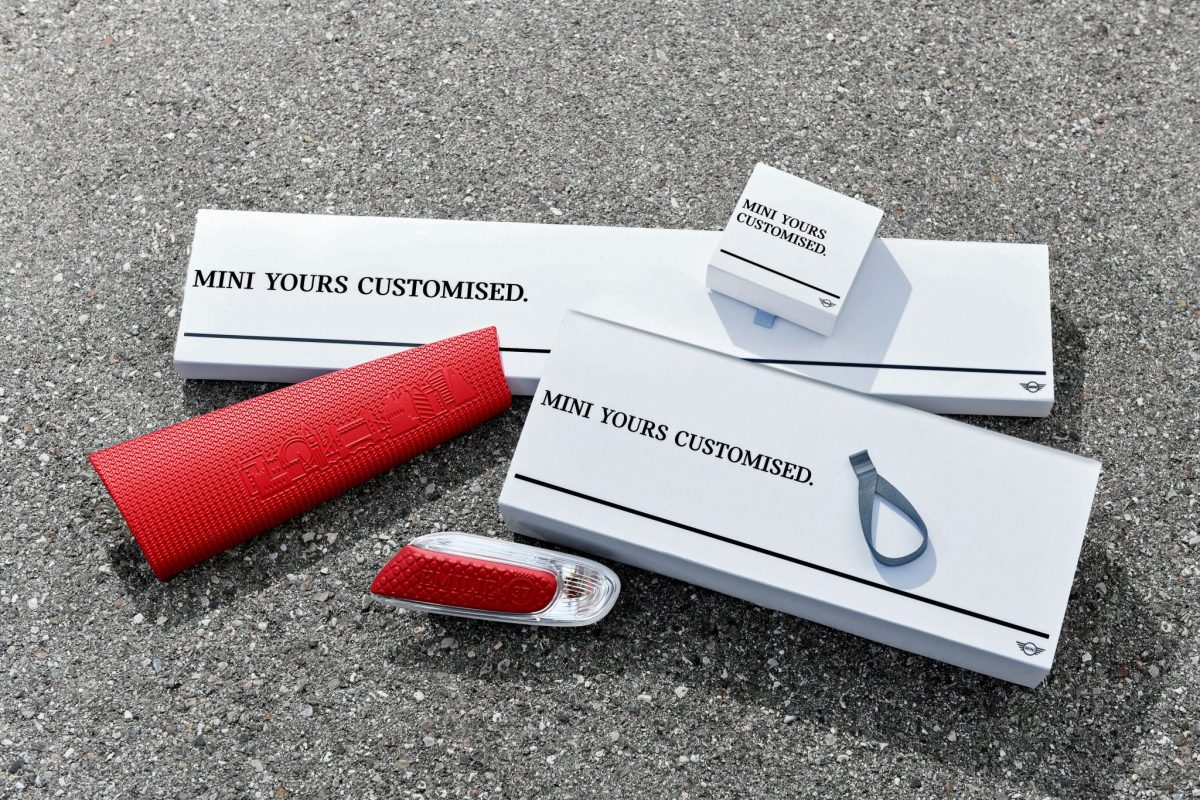Automotive manufacturer MINI has discontinued its MINI Yours Customised service which enabled customers to design and order personalized 3D printed parts for their cars.
Until now, MINI customers have been given the option to customize bespoke cosmetic parts for their vehicles, created through a combination of 3D printing and laser lettering. The company has given no explanation as to why the service, which involved the likes of HP, EOS, and Carbon, has been scrapped.

Personalized parts
Launched at the end of 2017, MINI Yours Customised was an app and supporting webshop that allowed MINI customers to modify cosmetic features of their car with personalized signatures or motifs. Through the online shop, customers could choose and customize the side scuttles, interior passenger side trims, dashboard trims, LED door sills, and LED door projectors of their vehicles, with a range of colors and font types.
The design was then 3D printed on-demand and delivered to the customer to fit themselves. The custom service was available for current MINI three-door and five-door cars and convertible models, but could also be retrofitted to older models providing they had a suitable base.
As part of the BMW Group, MINI embarked upon strategic partnerships with leading PBF 3D printer manufacturer EOS, multinational printing firm HP, and 3D printer manufacturer Carbon, to precisely configure the 3D printers used to make the inlays within the Yours Customised service.
MINI has previously deployed 3D printing for the creation of more efficient and aerodynamic wheels in its MINI Electric Concept model, while those at the head of the car brand have talked highly about how 3D printing is changing the automotive design process in the past.
In 2018, the firm commemorated the royal wedding of the Duke and Duchess of Sussex with a customized one-off car design that highlighted the depth of personalization the Yours Customised service offered.
3D printing automotive projects
MINI is part of the BMW Group, an early adopter of additive manufacturing having previously embarked upon multiple projects involving 3D printing for the concept design of future cars, blue-sky innovation projects, and the introduction of serial additive manufacturing to the automotive industry. In the past, BMW has won awards for its 3D printed roof brackets and its redesign of the S1000RR motorcycle frame, and established a specialist Additive Manufacturing Campus in 2018 through a €10 million investment.
Elsewhere, fellow automotive manufacturer Volkswagen announced that, together with GKN and HP, it had printed 10,000 metal parts on HP’s Metal Jet System, and Continental AG installed a Stratasys Fortus 450mc FDM 3D printer at its ADaM Competence Center in Karben, Germany, used in the manufacture of functional prototypes, end-use parts, and jigs and fixtures for the firm’s own production line.
Shortly after, Porsche announced the successful printing of a proof of concept E-drive housing on 3D printer manufacturer SLM Solutions’ NXG X11 600 3D printing system. The car manufacturer has previously worked with machine tool producer TRUMPF and automotive parts firm MAHLE to 3D print pistons for the engine of its flagship 911 supercar.
Meanwhile, new materials are being continually developed for the automotive sector through collaborative projects and research initiatives, including those which have been recycled and repurposed from food waste.
Subscribe to the 3D Printing Industry newsletter for the latest news in additive manufacturing. You can also stay connected by following us on Twitter and liking us on Facebook.
Be sure to subscribe to the Another Dimension podcast on your chosen podcast player to make sure you never miss an episode.
Looking for a career in additive manufacturing? Visit 3D Printing Jobs for a selection of roles in the industry.
Featured image shows the personal touch achieved with 3D printing in MINI Yours Customised. Image via MINI/BMW Group.
